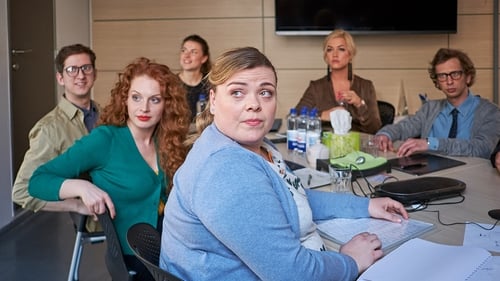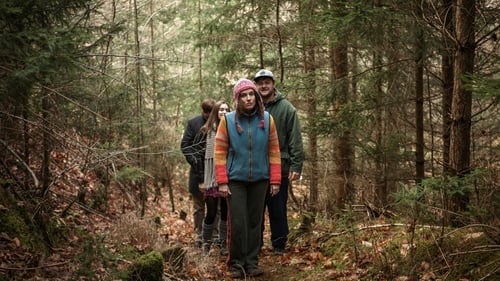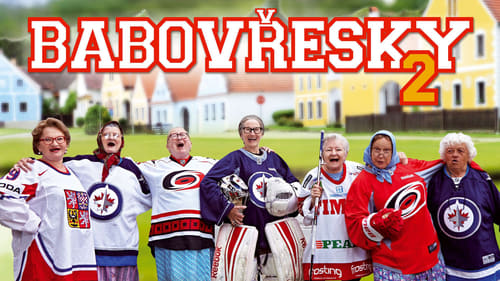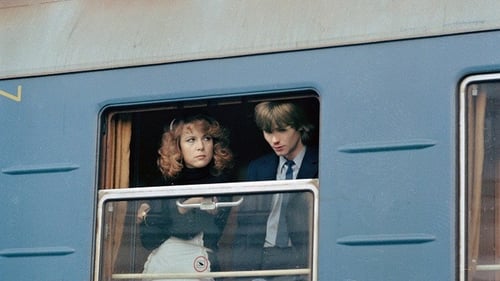
Recepční Jiřinka
The charismatic and self-confident man, Karel Král, is the editor-in-chief of men's magazine. Although a chauvinistic type, he is very popular with women. However, he struggles in his personal life. He frequently argues with his ex-wife over their 17 year-old daughter Julie, who despises his new way of life. Then the consequences of his behavior catch up with him. He loses his job, and the editor-in-chief position is given to a young and beautiful woman. But his bad luck does not end there. After another fight with his ex-wife and daughter, and a woman driver crashing into his car, Karel and his best friend Cestmír have an evening of binge drinking. During the wild night, he expresses a wish to be a woman. When he wakes up the next morning he discovers that his wish has been granted.

grandmother
When nostalgia makes her rethink the sale of her family cottage, a woman cajoles her husband and loved ones into one last getaway.

drbna Horáčková

drbna Horáčková

Vlasta Beránková

psycholožka Kudláková

psycholožka Kudláková

Teta Kateřina
Saturnin je sluha, který se stane pánem svého pána. Mladý muž dobrého společenského postavení a vychování, trochu konzervativní, získá, ne vlastní vinou, sluhu Saturnina. Ten se de facto stane pánem svého zaměstnavatele a způsobí v jeho dosud poklidném životě řadu překvapivých zvratů a situací. Ty by se bez Saturnina daly těžko zvládnout. Už proto ne, že by bez něj pravděpodobně nikdy nenastaly. Saturnin je v Čechách pojmem již několik generací. V roce 1942 napsal spisovatel a novinář Zdeněk Jirotka (1911 až 2003) knížku s tímto názvem a od té doby byla vydána dvanáctkrát. Čtenáři ji milují pro její suchý humor, ne nepodobný "anglickému", množství parodií a nadsázky a zejména pro absurdní situace, do kterých uvádí svérázný sluha Saturnin celé své okolí.

Hejkalová

Young Eugene from the provinces travels to Prague in search of fame. Once there he gets an offer to write engagé lyrics for pop songs...

(uncredited)
This distinctive documentary portrait of Prague extolls the beauty, significance and spirit of the ancient city adopting modern way of life. The form and content of the film share a common underlining principle. The author doesn't simply list out the sequence of events, but rather approaches them in a broader context of their historic implications and circumstances. The content of the film covers a large period from the pagan times to these days. The facts are grouped under several general headings (paganry, the spread of Christianity, renaissance, baroq and modern times) with allusions to the modern life of Prague and Praguers that has its roots in those times.

Hana Knapová

primářka
Funny banter about love, sex, social status, and other ideals, while a new railway employee is trained and sent on his first run as driver.

Laboratory
Sarcastic comedy about the Czechoslovakia of the seventies. A young gynaecologist can't figure out whether to get serious with a young nurse or to stay casual with his married lover. Things get complicated when both women don't want to play his game anymore.

The sore and tender hearts of a young couple with a toddler are explored in this drama. The little girl, four years old, is not aware that she is doing anything distressing while she ambles about the house on the day after a post-examination celebration by her father, a university student. Even though hung over, he tries hard to be patient with her. The beginning of the story follows her on her little adventures. The girl comes down with a fever, which kills her before anything can be done, and the student and his photographer wife mourn and comfort one another. Little encounters with children cause the mother pain she is seldom free of, until she gives birth to their next child, a son.

Madla Papírníková

A verger, who likes to dress as a priest, is invited, by one of the villagers, to be the pastor at a vacant church. The atheist teacher resents the pastor, and tries to embarrass him in various ways, including being caught with the local girl, Majka.







